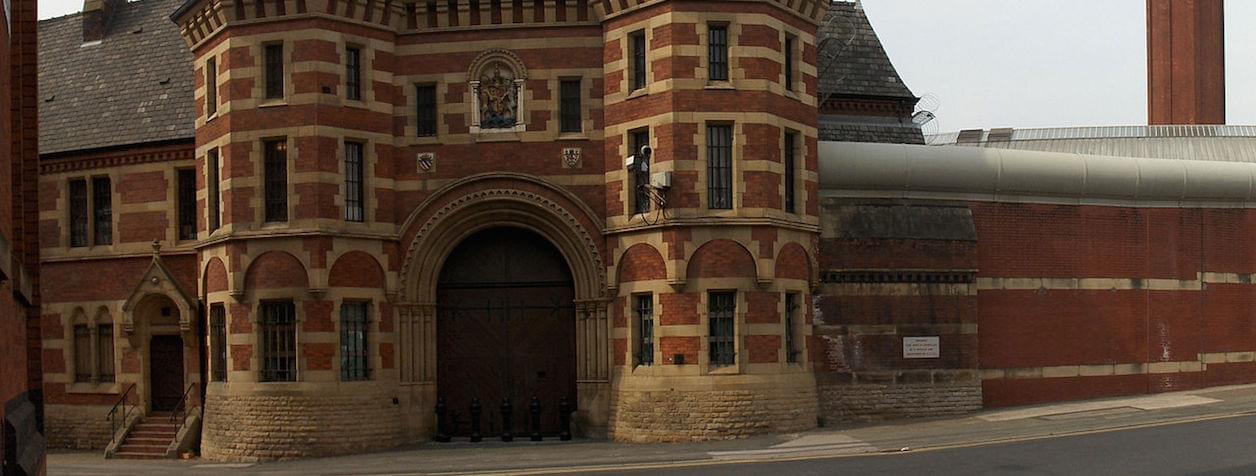No. 14 in a series of articles reporting on the responses of Caritas member organisations to the Covid-19 pandemic.
“Lockdown is a word that has come from the world of prisons, but what prisoners have experienced has been very different from how it has been for most of us,” said Andy Keen-Downs, Director of the Prison Advice and Care Trust (Pact). “In prison lingo, lockdown means being ‘behind your door’, that is, in your cell for at least 23 hours of everyday,” he said, and “the normal ‘regime’ of prison has stopped.”
Pact has been working, alongside chaplains, “bringing the care and support of the Church to people in prison, their children and families.” Mr Keen-Downs reported that, “some prisoners have coped well with lockdown, but others are struggling with the isolation and the effect on their health and mental health.”
At the start of lockdown Pact lobbied the government to help prisoners to maintain connections with their families, and access to cell phones has increased plus some secure video calls. Pact also continued to provide one-to-one support to prisoners and their families. Its Helpline for prisoners’ families saw calls double, with thousands of frantically worried family members desperate for information,” Mr Keen-Downs said.
Pact sent in tens of thousands of packs for prisoners, including activities to stave off boredom, a ‘Writing Home’ pack, and other resources. For mothers leaving prison, Pact provided grants to purchase food, nappies, and essentials, and provided emergency grants to struggling families and prison leavers, “who still only receive a £46 end of custody grant whilst they wait for Universal Credit payments, forcing many to choose between re-offending or sleeping on the streets.”
Pact Resettlement teams also continued to provide mentoring and advocacy support, and the Government’s support for emergency accommodation has been essential in helping prison leavers avoid sleeping rough during the pandemic. The current focus of Pact is on working with the Prison Service on plans to restore visits for families.
London-based Fr Gerry McFlynn, of the Irish Chaplaincy in Britain, normally visits prisons around England and Wales. Irish prisoners constitute the third largest ethnic group within the prison system, after Polish and Romanian prisoners. He said that his work “has been severely affected by the pandemic; in particular, prison visiting, which is the very backbone of our outreach service, has been suspended until further notice.”
He described the plight of prisoners as “truly terrible.” For the one hour out of their cells, “they have had to choose between queuing up for a family phone call (which may not materialise) or having a shower.” He said younger prisoners are finding it most difficult to cope with these restrictions, especially prisoners from the Traveller community who make up more than 45 percent of the Irish prisoner population. “These prisoners are used to living their lives out in the open and cannot cope with being confined for long periods of time,” he reported, and “this confinement is having an adverse effect on their mental health, especially now that family visits have also been discontinued.”
Over the past three months the Irish Chaplaincy has engaged with prisoners by emailing them. Fr McFlynn said, “we have also provided them with money for much-needed phone credit so that they can keep in touch with loved ones in the absence of visits – this has been by far the most pressing need of prisoners during lockdown.” He felt many are now just desperate to talk to someone, reflecting that, “a recent example was when I received a call from a prisoner in the segregation unit of a prison threatening self-harm and desperate to talk to someone outside the prison about his situation.”
Prisoners have been sent games, puzzles, colouring books, and CDs of Irish music. A traveller at HMP Stocken wrote: “I’m really thankful and even more now I have some stuff to do to kill the time.” Fr McFlynn said, “This service is likely to continue for many months to come as the indications are that family visiting may now not re-commence until late October 2020 at the earliest.”
The Catholic Bishops’ Conference of England and Wales has reported that 338 chaplains serve more 14,000 Catholic prisoners and, “throughout the lockdown Catholic chaplains have been on hand to provide spiritual and pastoral support.”
Chaplains are clergy, religious and lay. While corporate worship has been suspended, “there has been a significantly increased take-up of chaplaincy services among Catholics in prison during the lockdown with more people asking for support and resources than would normally attend Mass.” Those receiving chaplaincy services have responded very positively, “highlighting how it has helped them to cope with this difficult period and address anxieties they are facing and this has been especially important while people have not been able to see their families.”
This post is adapted from an article by Ellen Teague, first published in ‘The Tablet’ in association with CSAN.




